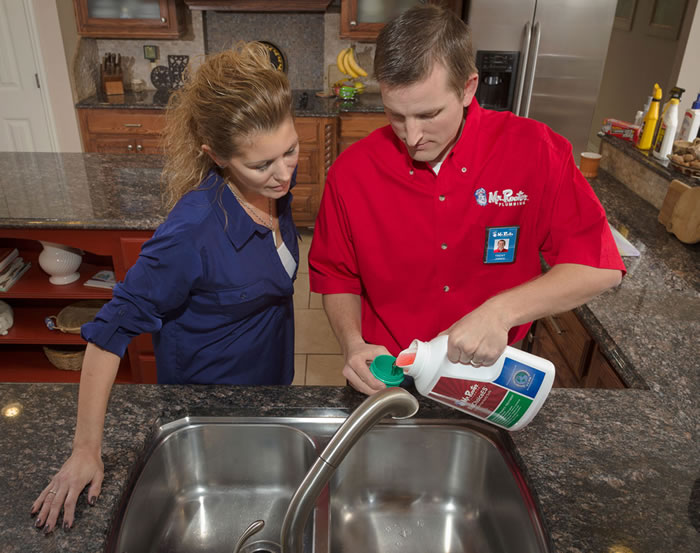Menu
Call This Sunday to Get $50 Off
Do You Need a Plumber in Dallas, TX? Call us Now to Get $50 OFF
4.8 / 5 Ratings based on 1384 reviews Great Plumbers, Great Reviews
Call This Sunday to Get $50 Off
Noisy plumbing is never fun and could indicate that you have a serious plumbing issue. Nothing can be more annoying than the sound of a squeaking pipe echoing through your home or the sudden bang of a water hammer disrupting your peace. While some noisy plumbing issues may be minor inconveniences, they could also be early signs of more significant problems within your plumbing system.

It's important to address these disturbances as quickly as possible to prevent potential damage and ensure the smooth operation of your plumbing. In this blog post, Mr. Rooter Plumbing looks at the five possible causes of noisy plumbing and fixes.
High Water Pressure
High water pressure can cause a variety of noises, including banging, whistling, and screeching. This is because the water is rushing through the pipes too quickly, causing them to vibrate. In addition, high water pressure can damage your plumbing fixtures over time.
What To Do
Install a pressure-reducing valve on your main water line to regulate the pressure and prevent it from exceeding the recommended level.
Water Hammer
One common cause of disruptive plumbing sounds is water hammer, which occurs when water suddenly changes direction or stops, creating a shockwave in the pipes. This can happen when you quickly turn off a faucet or toilet valve. This phenomenon can lead to loud banging noises and, if left unattended, may result in damage to valves and fittings.
What To Do
Install water hammer arrestors or air chambers on your pipes to absorb the shockwaves and prevent them from causing noise.
Loose Components
Loose components, such as fasteners and washers, are another culprit, causing rattling or vibrating sounds when water flows through them. This problem is common in older homes.
What To Do
Use pipe straps, clips, or hangers to secure loose pipes and prevent them from rattling or vibrating during water flow. Check for any loose components, such as loose faucet handles or valves, and tighten them to eliminate potential sources of noise.
Clogs can cause a variety of noises, including gurgling, bubbling, and sputtering. This is because the water is having to force its way through the clog, causing vibrations and turbulence.
What To Do
Clear the clog using a plunger, a plumber's snake, or enzymatic drain cleaners. If the clog is severe, you may need to call a professional plumber to help you out. Regular maintenance, such as cleaning drains, can help prevent clogs.
Over time, sediment can build up at the bottom of your water heater. This sediment can cause a rumbling or knocking noise when the heater is heating water. In addition, it can reduce the appliance’s heating efficiency.
What To Do
Periodically flush the water heater to remove sediment buildup at the bottom of the tank. If your water supply has a high mineral content, consider installing a water softener to reduce sediment accumulation in the water heater.
Noisy plumbing can be a nuisance, but it can also be a sign of a more serious problem. If you're hearing strange noises coming from your pipes, it's important to have them checked out by a qualified plumbing service. Mr. Rooter Plumbing is a trusted name in the plumbing industry, and they can help you diagnose and repair the problem quickly and efficiently.
One slow drain is annoying but usually manageable. When two or three start backing up…
Read More+Kitchen plumbing gets used more than almost any other system in the house, and constant…
Read More+Few home repairs carry stakes as high as work involving natural gas. The convenience of…
Read More+Running a business means juggling countless responsibilities, and plumbing probably isn't at the top of…
Read More+